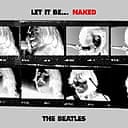When Let It Be appeared as (ostensibly) the final Beatles album in May 1970, even though it had been recorded before 1969's Abbey Road, it was widely dismissed as a dog's dinner, criminally unworthy of the Moptop legacy. Blame was heaped on eccentric producer Phil Spector, who had been invited by John Lennon to pore over the tapes after the Beatles had rejected two test pressings assembled by Glyn Johns.
Spector, given only a few weeks to produce a finished product to tie in with the release of a documentary film provisionally entitled Get Back (eventually also called Let It Be), responded by submerging the material in a treacly swamp of sound, with I Me Mine, The Long and Winding Road and Across the Universe bearing the brunt of his odious Mantovani-isation. Lennon, disillusioned with the band and insulated by Yoko and a heroin habit, seemed indifferent. McCartney hated the results so much that he claimed Let It Be was one of his chief motivations for wanting to dissolve the Beatles.
After 30 years of feeling irked by this discordant stain on their legacy, the surviving Fabs set about creating a version of Let It Be that was closer to their original intentions (George Harrison gave the project the nod before his death). Back in early 1969, the plan had been for the Beatles to throw out all the psychedelia and studio trickery and, if you will, "get back" to being the live four-piece band of their earliest days. The boffins at their old haunt, Abbey Road studios, were commissioned to re-examine the Let It Be tapes in the light of the latest audio technology, and to try to reignite the original spirit of the project.
Technically, they've done a fine job, though there's no overcoming the fact that the material falls far short of the group's best. For instance, it may be intriguing to hear a version of Across the Universe featuring only Lennon and some echo effects, but the new mix merely emphasises the song's droning vapidity. The Long and Winding Road is indubitably improved by the removal of Spector's wall of schmaltz, but it's still teeth-clenchingly mawkish. For You Blue is skiffle, and therefore belongs in Room 101.
However, there are several pleasant surprises, not least the startling clarity and room-filling presence the engineers have extracted from the tapes. Get Back pumps along on a resonant thrum of drums and chiming rhythm guitar. One After 909 is cheerfully loose and raucous, and the warm, buoyant sound works wonders on the raw gospel funkiness of I've Got a Feeling. It was also a smart move to rescue Don't Let Me Down (heard here in its rousing live-on-the-Apple-rooftop version) from B-side limbo, since it's one of the strongest tracks. I could live without the extra disc of rehearsal fragments and disconnected between-band mutterings, which panders to the worst kind of Beatle-anorak nerditude, but you can believe that this is how Let It Be should have been.
